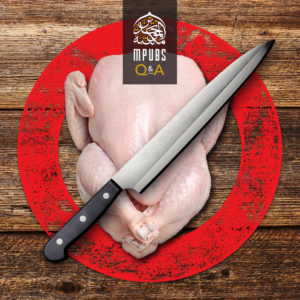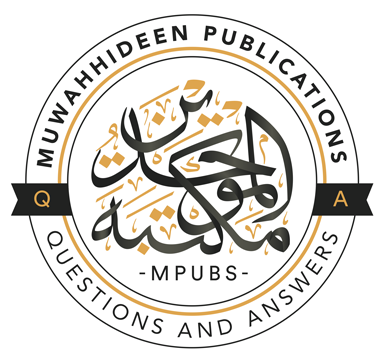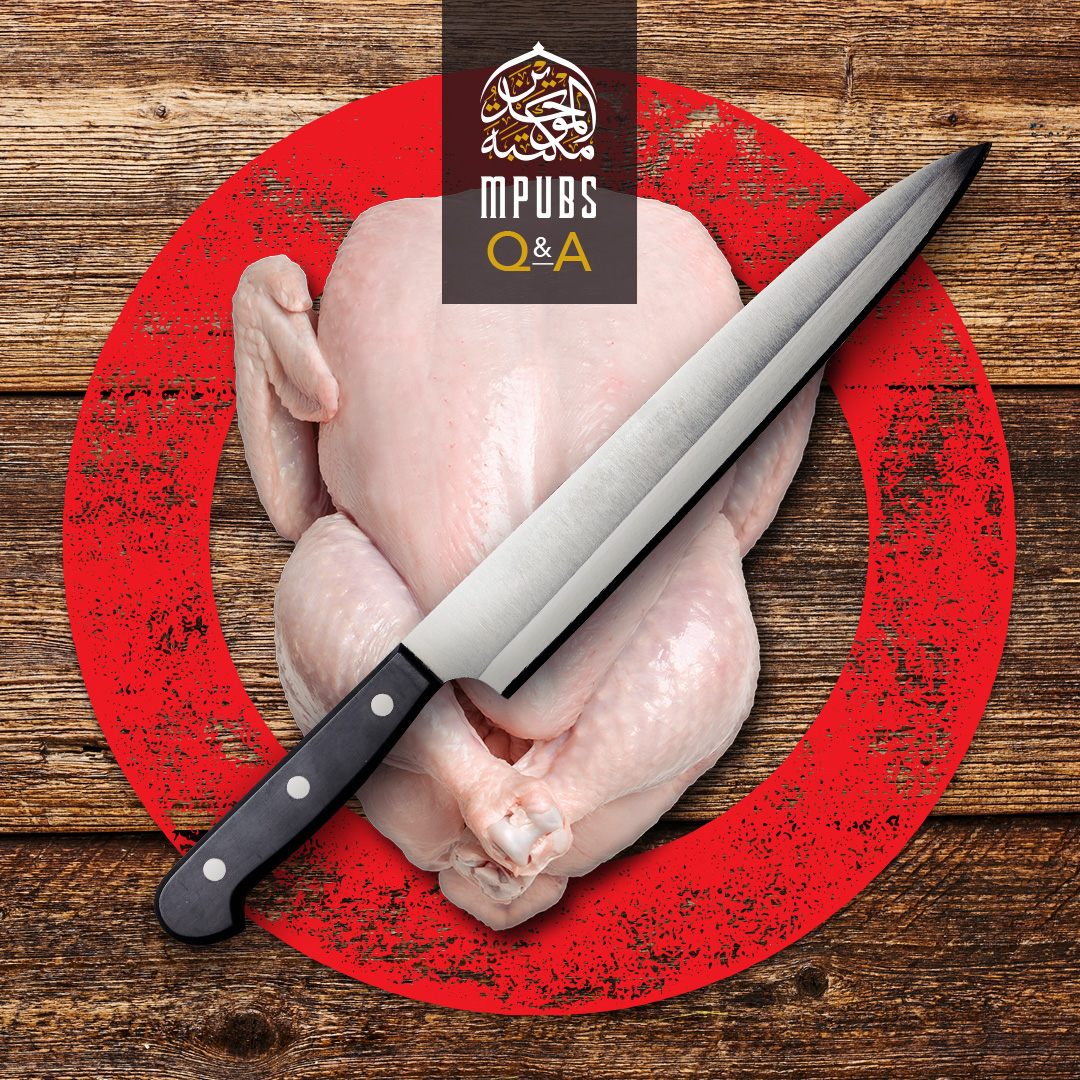Pivotal Quote
“The information given by a Muslim is to be accepted, and the rule of thumb when it comes to the Muslim and what he informs, is that he is telling the truth. The believer by default is trustworthy and his speech, by default is truthful, unless there is some evidence to lead us to believe otherwise…”
سؤال وجواب – عربي – ٣:٢٣ دقائق
Question and Answer – English [5:06]
 Question:
Question:
There is a local Deobandī organisation that is an official branch of the Dār al-‘Ulūm from India. They are the official certification body here in Trinidad and Tobago. They have deemed many of the certified ḥalāl chicken from the US as ḥarām, because it is mechanically slaughtered, and the animals are lightly stunned before being slaughtered. The reason for this they claim, is that there is a possibility that some of the chickens can be killed in the process. However, the Islāmic society of North America has certified it and guaranteed that this does not happen. What is the origin of this affair? Can you help enlighten the Muslims on the affair of trusting ḥalāl certification bodies and the issue of stunning?
Answer:
The information given by a Muslim is to be accepted, and the rule of thumb when it comes to the Muslim and what he informs, is that he is telling the truth. The believer by default is trustworthy and his speech, by default is truthful, unless there is some evidence to lead us to believe otherwise.
Allāh says,
﴾يَٰٓأَيُّهَا ٱلَّذِينَ ءَامَنُوٓا۟ إِن جَآءَكُمْ فَاسِقٌۢ بِنَبَإٍ فَتَبَيَّنُوٓا۟ أَن تُصِيبُوا۟ قَوْمًۢا بِجَهَٰلَةٍ فَتُصْبِحُوا۟ عَلَىٰ مَا فَعَلْتُمْ نَٰدِمِينَ﴿
“O you who believe! If a fāsiq, (a wicked and sinful) person comes to you
with some information, then verify it.” [Sūrah al-Ḥujurāt 49:6]
Meaning, if we look at this verse in the opposite way, in that if a person comes to us with information who is not a fāsiq, and we do not know him to be a sinful and wicked person, then we are to accept his speech without having to verify it. And so, if an Islāmic organisation, which is a body that represents the Muslims in that country has given a formal evaluation of something, the rule of origin is that they are telling the truth.
And it is known by necessity, that even the slaughtering (of meat) of the People of the Book who are not Muslims, is permissible, as seen in the Qur’ān. This is the People of the Book, the Jews and the Christians. Their meat that they slaughter is permissible, so what about a Muslim?
The general rule concerning this is that if they say it is permissible and it has been slaughtered according to the correct process that we have in Islām, the general rule concerning it is that they are telling the truth and we are to accept what they have said unless we have some evidence to prove otherwise.
Now, if we do have evidence that the animals are being electrocuted and what is killing them is the electrocution and not the slaughtering process, then this is ḥarām and it takes the rule of being maytah, just like roadkill. This is ḥarām and we cannot eat it.
(However, as it is the process of many of the slaughterhouses, the chickens and other animals experience a shock which calms them down such that when they pass by the blade that slaughters them, they are not flapping around. The shock calms them down but does not kill them. If this is the case that the shock is not killing them, then it is permissible to eat, unless we have evidence that the shock is so strong, that it actually electrocutes and kills them, and what they die from is the shock and not the blade.)
When it comes to the person giving us information being a believer, the rule of thumb with his speech is that it is the truth, and if we have some evidence to prove otherwise, then we are to advise that person. If we found that they were telling other than the truth, then they should be advised. If they accept this advice, then Alḥamdulilāh. And if not, then they should be warned against for cheating the Muslims, and Allāh knows best.


جزاكم الله خيرا
ماشاء الله.
This is a long awaited word on this.
بارك الله فيكم
والسلام عليكم ورحمة الله وبركاته